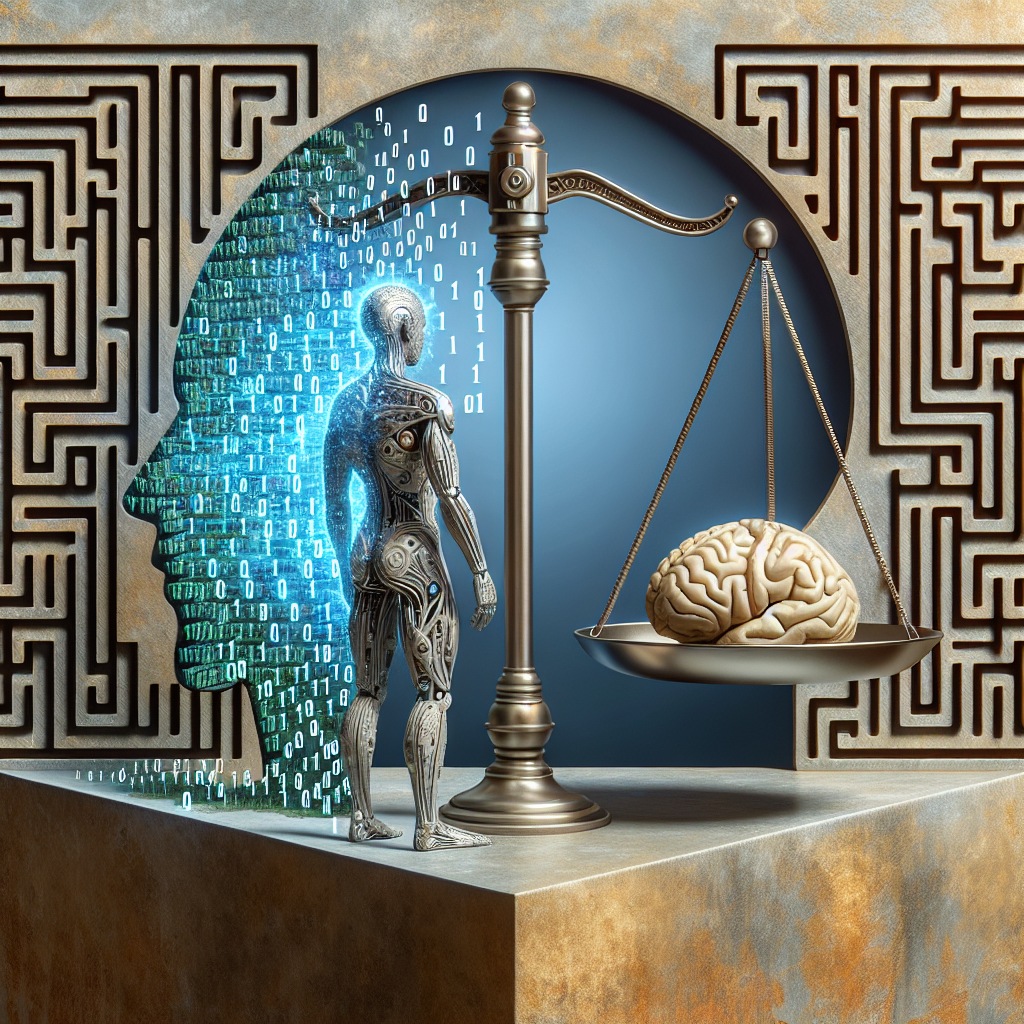Artificial intelligence (AI) has made significant advancements in various fields, including healthcare. In the realm of mental health, AI has the potential to revolutionize the way mental health disorders are diagnosed and treated. However, with this potential also comes risks. One of the major risks of using AI in mental health is the potential for misdiagnoses and the consequences that can arise from these errors.
AI algorithms are designed to analyze large amounts of data and identify patterns that may not be easily recognizable to human clinicians. This can be incredibly beneficial in diagnosing mental health disorders, as AI can potentially identify patterns that may indicate the presence of a disorder before symptoms become severe. However, AI algorithms are not infallible, and there is always a risk of misdiagnosis.
One of the main reasons for potential misdiagnoses in mental health is the complexity and variability of mental health disorders. Mental health disorders can present in a wide range of symptoms and manifestations, and what may appear to be a clear-cut diagnosis to an AI algorithm may actually be a more nuanced and complex issue that requires human intervention to properly diagnose. Additionally, AI algorithms may be trained on biased data sets, which can lead to inaccurate or incomplete diagnoses.
Another risk of using AI in mental health is the potential for over-reliance on technology. While AI can be a valuable tool in diagnosing mental health disorders, it should not replace the expertise and judgment of human clinicians. Relying too heavily on AI algorithms without proper oversight and input from trained professionals can lead to missed diagnoses, incorrect treatment plans, and other negative outcomes.
The consequences of misdiagnoses in mental health can be serious and far-reaching. Misdiagnoses can lead to incorrect treatment plans, which may result in ineffective or harmful interventions for the individual. Additionally, misdiagnoses can have a significant impact on an individual’s mental health and well-being, as they may be left untreated or receive treatment for a condition they do not actually have.
In some cases, misdiagnoses can also have legal and ethical implications. For example, if an individual is misdiagnosed with a mental health disorder and prescribed medication that is not appropriate for their condition, this can lead to adverse effects and potential legal consequences for the prescribing clinician.
To mitigate the risks of AI in mental health, it is important for healthcare providers to approach the use of AI technology with caution and skepticism. AI algorithms should be used as a complementary tool to assist clinicians in making diagnoses and treatment decisions, rather than as a replacement for human judgment and expertise. Additionally, healthcare providers should be vigilant in monitoring the performance of AI algorithms and ensuring that they are trained on diverse and unbiased data sets.
In conclusion, while AI has the potential to greatly improve the diagnosis and treatment of mental health disorders, there are risks associated with its use. Misdiagnoses in mental health can have serious consequences for individuals, including ineffective treatment and negative impacts on their mental health and well-being. Healthcare providers must approach the use of AI in mental health with caution and ensure that it is used as a supplemental tool rather than a replacement for human expertise.
FAQs:
Q: Can AI accurately diagnose mental health disorders?
A: While AI algorithms have the potential to accurately diagnose mental health disorders, there is always a risk of misdiagnosis. AI algorithms should be used as a complementary tool to assist clinicians in making diagnoses, rather than as a replacement for human judgment.
Q: What are the consequences of misdiagnoses in mental health?
A: Misdiagnoses in mental health can lead to incorrect treatment plans, ineffective interventions, and negative impacts on an individual’s mental health and well-being. Misdiagnoses can also have legal and ethical implications for healthcare providers.
Q: How can healthcare providers mitigate the risks of AI in mental health?
A: Healthcare providers should approach the use of AI technology in mental health with caution and skepticism. AI algorithms should be used as a supplemental tool to assist clinicians in making diagnoses, rather than as a replacement for human expertise. Healthcare providers should also be vigilant in monitoring the performance of AI algorithms and ensuring that they are trained on diverse and unbiased data sets.

